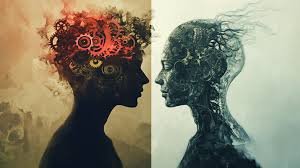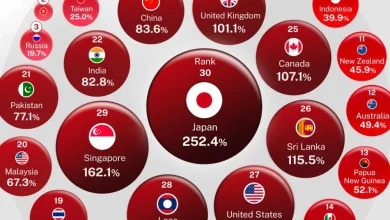Bridging the Gap: Key Similarities Between Eastern and Western Cultures

While Eastern and Western cultures are often described as vastly different in terms of values, traditions, and societal norms, they also share several key similarities that are often overlooked. These similarities underscore the shared human experience and highlight how globalization, historical interactions, and universal values shape societies across the world. By focusing on what connects these two cultural spheres, we gain a deeper understanding of the unity within diversity.
Shared Emphasis on Family Values
One of the most significant commonalities between Eastern and Western cultures is the importance placed on family.
- Eastern Cultures: Family is often viewed as the central unit of society, with a strong emphasis on collective well-being and respect for elders. Multi-generational households and familial loyalty are cornerstones of many Eastern societies.
- Western Cultures: While individualism is often highlighted in Western societies, the importance of family remains fundamental. Family gatherings, holidays like Thanksgiving and Christmas, and the support system within families reflect a similar focus on maintaining familial bonds.
Both cultures recognize the family as a key source of emotional, financial, and social support, despite variations in how these values are expressed.
Read More: Cultural Contrasts: Exploring Eastern and Western Europe Differences
Shared Humanitarian and Ethical Principles
Ethical principles such as kindness, honesty, and fairness are valued in both Eastern and Western cultures, albeit sometimes grounded in different philosophical or religious traditions.
- Eastern Philosophies: Teachings from Confucianism, Buddhism, and Hinduism emphasize compassion, non-violence, and moral behavior. For example, the concept of “ahimsa” (non-harming) in Hinduism and Buddhism underscores the importance of empathy and ethical action.
- Western Philosophies: Similarly, Western traditions rooted in Christianity, Judaism, and Greco-Roman philosophy emphasize principles like the Golden Rule (“treat others as you would like to be treated”), justice, and charity.
These shared humanitarian values provide a common foundation for moral conduct and global cooperation.
Appreciation for Education and Knowledge
Both Eastern and Western cultures prioritize education and view it as a path to personal and societal advancement.

- Eastern Cultures: In countries like China, Japan, and India, education has historically been regarded as a sacred pursuit. Confucian ideals, for instance, emphasize the role of education in cultivating virtue and societal harmony. Academic success is often celebrated and supported.
- Western Cultures: Western societies, particularly since the Enlightenment, have championed the value of critical thinking, scientific inquiry, and access to education. Institutions such as universities have played a pivotal role in advancing knowledge and innovation.
Both cultural spheres recognize education as a tool for empowerment, progress, and global development.
Celebrations of Art and Creativity
Art serves as a universal medium for cultural expression and has been deeply valued in both Eastern and Western traditions.
- Eastern Cultures: Traditional art forms such as Chinese calligraphy, Japanese tea ceremonies, and Indian classical music are revered for their elegance and connection to cultural identity. These traditions emphasize harmony, spirituality, and attention to detail.
- Western Cultures: Similarly, Western cultures celebrate artistic achievements ranging from Renaissance art and classical music to modern literature and cinema. Creativity and self-expression are celebrated across all forms of art.
Both cultures demonstrate a profound appreciation for the transformative power of art and its ability to preserve and transmit cultural heritage.
Spiritual and Philosophical Exploration
Despite differences in religious practices and philosophies, both Eastern and Western cultures share a commitment to spiritual and philosophical exploration.
- Eastern Traditions: Philosophies such as Taoism and Zen Buddhism encourage introspection and the pursuit of inner peace. Eastern spirituality often emphasizes the interconnectedness of all living beings and the quest for enlightenment.
- Western Traditions: Western cultures, influenced by Christianity, Judaism, and Islam, emphasize moral teachings and the search for truth through faith and reasoning. Additionally, Western philosophy, from Socrates to Kant, has explored questions of existence, morality, and human purpose.
Both regions have contributed to humanity’s collective understanding of life’s deeper questions, offering complementary perspectives.
Work Ethic and Economic Aspirations
Both Eastern and Western cultures value hard work and view it as essential to personal and societal success.
- Eastern Cultures: A strong work ethic is deeply ingrained, with values like discipline, perseverance, and dedication playing a central role in personal and professional life. Countries like Japan are renowned for their commitment to excellence and innovation.
- Western Cultures: Similarly, Western societies champion the ideals of ambition, productivity, and the pursuit of the “American Dream.” Entrepreneurship and innovation are highly encouraged.
The mutual appreciation for hard work underscores a shared aspiration for growth, achievement, and economic prosperity.
Globalization and Cultural Exchange
In an increasingly interconnected world, the similarities between Eastern and Western cultures have been amplified by globalization. Shared experiences, such as the adoption of technology, global trade, and cross-cultural collaborations, have brought these cultures closer together.
- Eastern and Western cuisines have influenced each other, with sushi bars in New York and burger chains in Tokyo exemplifying this exchange.
- Films, music, and fashion trends often transcend cultural boundaries, creating shared global experiences.
This exchange fosters mutual understanding and highlights the universality of human creativity and innovation.
Conclusion
While cultural differences between East and West are often emphasized, their similarities reveal the universal aspects of human civilization. Shared values like family, education, creativity, ethics, and spirituality connect these two cultural spheres, providing a foundation for mutual respect and collaboration. As globalization continues to bridge gaps, celebrating these commonalities fosters deeper appreciation and understanding, paving the way for a harmonious and unified global community.
FAQs :
1. Are there any common values shared between Eastern and Western cultures?
Yes, both Eastern and Western cultures emphasize core values such as family, respect, education, and community. While the expression of these values may differ, their importance is universally acknowledged.
2. Do both cultures value education equally?
Absolutely. Education is highly regarded in both Eastern and Western cultures, serving as a pathway to personal and professional success. While teaching styles may differ, both emphasize learning and self-improvement.
3. How do Eastern and Western cultures view family?
Both cultures recognize the importance of family as a foundational unit of society. Eastern cultures often focus on extended family, while Western cultures prioritize nuclear family structures, but both celebrate the bonds of kinship.
4. Do Eastern and Western cultures share common religious principles?
Despite differences in religious practices, both cultures promote similar ethical principles, such as compassion, humility, and a sense of morality. These shared values transcend specific religions and contribute to social harmony.



